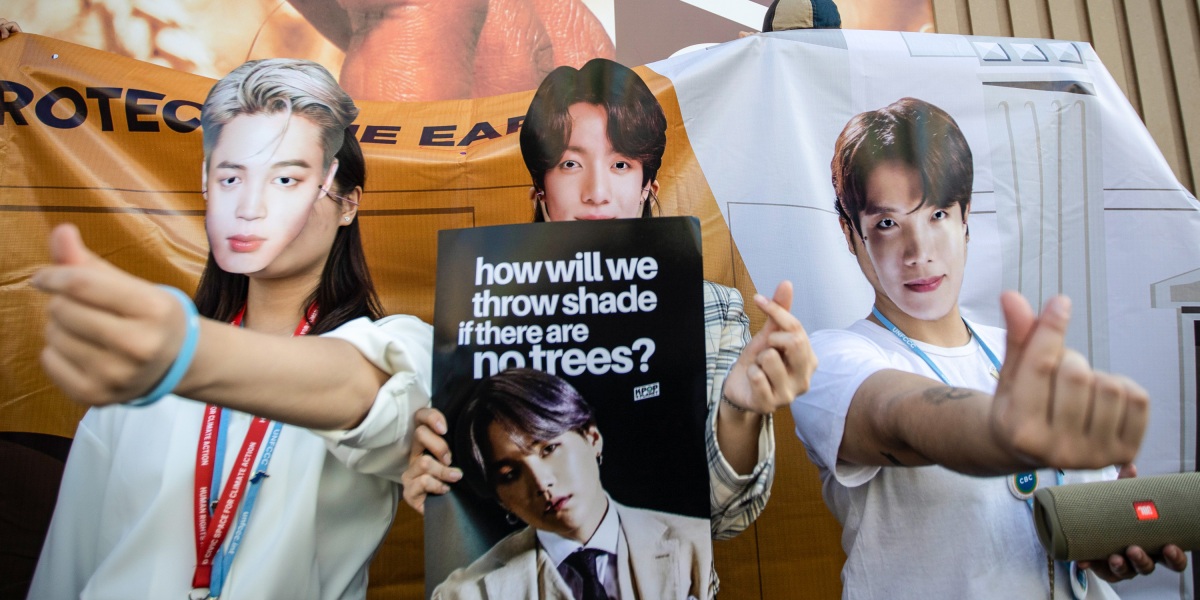
In 2022, the group announced that it would take a break so its members could focus on solo projects and fulfill their country’s mandatory military service over the next two years. But so far, fans have remained loyal, showing up to stream, purchase, and support that solo work. With seven individual careers now taking off, it’s possible the fandom could continue to grow.
Though BTS Army is the largest in number, other K-pop fan groups now engage in similar social and political activities. Jorquera, whose favorite groups are BTS and EXO, emphasizes that Kpopers for Boric was exactly that—a coalition of K-pop fans who follow different groups.
The Chileans riffed on what they learned from other successful K-pop campaigns: how to create viral social media posts, host events to build community, and connect people on the basis of a common interest. They also used iconography familiar to K-pop fandoms. Every K-pop group has a logo, and every fandom gets a name and a special light stick that changes color or displays messages synced to the music via Bluetooth. Some groups also have a designated color (BTS is purple). Kpopers for Boric created a logo for the politician and adopted green as his signature hue.
They used images of K-pop idols in social media campaigns to gain traction. They sent an Uber to Boric’s campaign headquarters to deliver a cake decorated with the candidate’s face, a “Koya” keychain (featuring an animated koala who represents BTS’s leader RM), and K-pop-inspired photo cards of Boric, documenting it all in a TikTok video. The video spread, earning 387,000 likes.
As they organized events at cafés, printing 200 coffee-cup sleeves with QR codes linked to voter information sites, Boric began incorporating K-pop into his campaign videos. The group even arranged rides for voters on election day.
In December 2021, with record voter turnout, Boric was elected as the country’s youngest president. He’d promised to cancel student debt, tax the rich, lower health-care costs, revise the country’s social security system, and fight climate change. After the election, Jorquera thought, “Oh my God, we did this.”
It wasn’t only K-poppers, she acknowledges: “Everyone was using what they cared about the most for supporting this campaign.”
In Brazil, where K-pop is extremely popular, BTS fans used similar tactics to reach apolitical fans. The group Army Help the Planet originally formed to fight climate change but turned its attention to registering voters ahead of the October 2022 presidential election. At the start of its voter registration campaign, 16- and 17-year-olds (for whom voting is optional, though it is mandatory for most citizens 18 and up) were turning out at the lowest level in 30 years.
